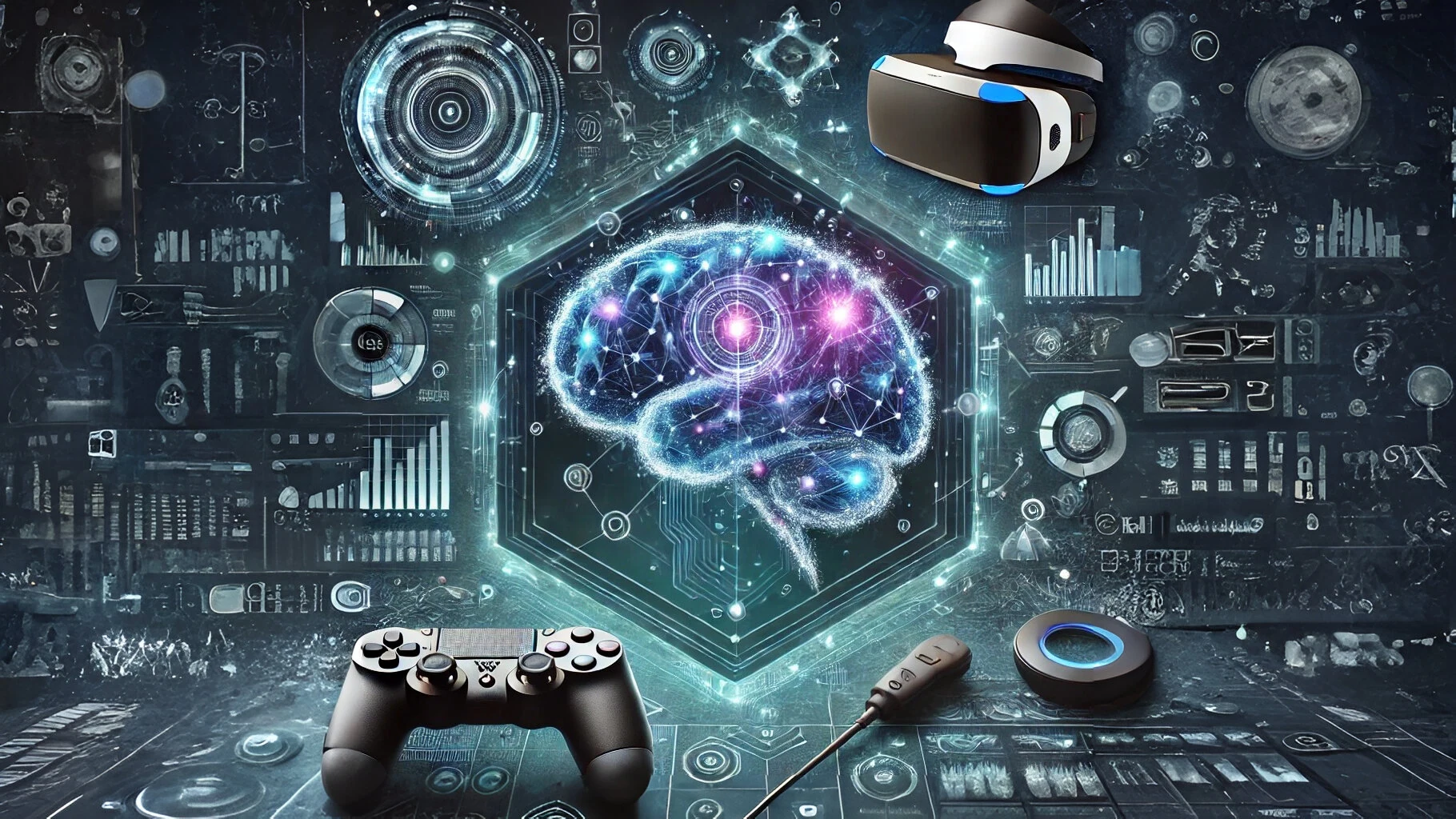gaming
Level Up Your Mind The Hidden Cognitive Benefits of Gaming
Unlock the Hidden Cognitive Benefits of Gaming Did you know that video games can enhance multitasking, memory, and decision-making skills? Far from being just entertainment, research shows that gaming can strengthen cognitive abilities, improve strategic thinking, and even combat cognitive decline. Whether you’re a player or a developer, understanding how gaming impacts the brain opens new opportunities for smarter game design and engagement.
February 17, 2025

Can Video Games Make You Smarter? Science Says Yes!
For years, video games have been dismissed as distractions, often blamed for shortening attention spans and reducing productivity. But what if gaming wasn’t just fun—but actually enhanced cognitive abilities? Research shows that gaming can improve multitasking, memory, decision-making, and problem-solving skills, making it a powerful tool for cognitive enhancement.
From fast-paced action shooters to strategy-driven war games, video games train the brain to process information rapidly, adapt to new challenges, and manage multiple tasks simultaneously. Developers are leveraging these insights to design experiences that not only entertain but also boost cognitive function.
As the gaming industry evolves, so does its potential to contribute to cognitive development. Video games are becoming more than just entertainment; they are interactive tools that enhance focus, attention, and problem-solving abilities. But how exactly do video games benefit the brain? And how can developers create games that foster cognitive skills? Let’s dive into the science behind the mind-boosting power of gaming.
The Cognitive Benefits of Gaming
- 1. Enhanced Multitasking Skills Gaming environments often require players to manage multiple objectives simultaneously. Action games such as Call of Duty or Fortnite challenge players to track enemy movements, manage resources, and coordinate team strategies—all at lightning speed. These abilities translate into real-world multitasking improvements, helping players become more efficient in high-pressure situations like managing multiple projects or solving problems on the go.
- 2. Improved Memory and Spatial Skills Games like Minecraft and The Legend of Zelda require players to remember intricate maps, solve puzzles, and track various objectives. This strengthens working memory and spatial awareness, which are essential skills for navigation, problem-solving, and creative thinking.
- 3. Boosted Decision-Making Abilities Fast-paced games often demand split-second decisions with lasting consequences. Studies have shown that action gamers develop faster reaction times and better decision-making skills under pressure, which translates into everyday situations such as driving, business negotiations, and emergency responses.
- 4. Strengthened Teamwork and Individual Performance Multiplayer games such as Overwatch or League of Legends require collaboration, communication, and leadership. Players learn to work effectively within a team while also honing their individual skills to contribute to shared objectives. Conversely, single-player games like The Witcher 3 or Dark Souls demand independent problem-solving and self-reliance, fostering personal growth and strategic thinking.
- 5. Enhanced Problem-Solving and Critical Thinking Strategy games like Civilization or Age of Empires encourage players to think critically, plan ahead, and adapt to dynamic in-game scenarios. These games improve cognitive flexibility and long-term strategic thinking, skills that are beneficial in business, education, and everyday life.
The Science Behind the Benefits
One of the most compelling studies on video games and cognition comes from the University of California, San Francisco. The NeuroRacer experiment demonstrated that older adults who played the game improved their multitasking abilities to levels comparable to 20-year-olds after just one month of training. This groundbreaking research highlights the potential of gaming to counteract age-related cognitive decline and enhance mental sharpness.
Additional research has shown that gaming can lead to increased gray matter in the brain, particularly in areas responsible for memory, spatial navigation, and motor control. The more complex and engaging the game, the greater the cognitive benefits.
Developers: A Call to Action
Game designers have a unique opportunity to create experiences that not only entertain but also educate and inspire cognitive growth. Here’s how developers can contribute to cognitive enhancement:
- Design with Purpose: Incorporate challenges that promote strategic thinking, memory recall, and multitasking.
- Leverage Feedback Loops: Use in-game analytics to adapt challenges to players’ skill levels, keeping them engaged and motivated.
- Focus on Accessibility: Develop games that cater to players of all ages and abilities, expanding the reach of cognitive benefits.
- Encourage Social Interaction: Build cooperative modes that strengthen teamwork skills and enhance problem-solving in a collaborative environment.
Conclusion
The future of cognitive enhancement lies at the intersection of gaming and neuroscience. Video games, with their engaging and challenging nature, offer a promising avenue for improving cognitive abilities such as multitasking, problem-solving, and memory. By embracing the potential of interactive therapy and gamified cognitive training, we can unlock new pathways for brain health and development.
Game developers, it’s time to level up and create the next generation of cognitively beneficial games. Let’s make gaming a force for good in the world of cognitive health!